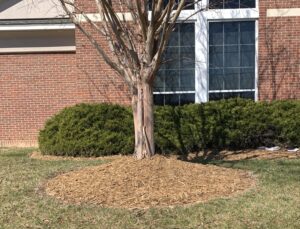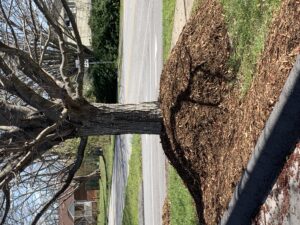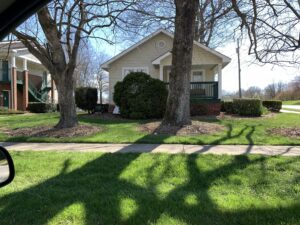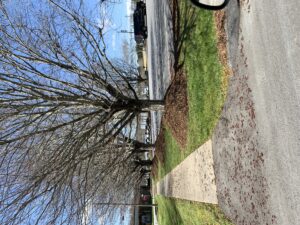Plant Health Alert – Excessive Mulch
go.ncsu.edu/readext?856255
en Español / em Português
El inglés es el idioma de control de esta página. En la medida en que haya algún conflicto entre la traducción al inglés y la traducción, el inglés prevalece.
Al hacer clic en el enlace de traducción se activa un servicio de traducción gratuito para convertir la página al español. Al igual que con cualquier traducción por Internet, la conversión no es sensible al contexto y puede que no traduzca el texto en su significado original. NC State Extension no garantiza la exactitud del texto traducido. Por favor, tenga en cuenta que algunas aplicaciones y/o servicios pueden no funcionar como se espera cuando se traducen.
Português
Inglês é o idioma de controle desta página. Na medida que haja algum conflito entre o texto original em Inglês e a tradução, o Inglês prevalece.
Ao clicar no link de tradução, um serviço gratuito de tradução será ativado para converter a página para o Português. Como em qualquer tradução pela internet, a conversão não é sensivel ao contexto e pode não ocorrer a tradução para o significado orginal. O serviço de Extensão da Carolina do Norte (NC State Extension) não garante a exatidão do texto traduzido. Por favor, observe que algumas funções ou serviços podem não funcionar como esperado após a tradução.
English
English is the controlling language of this page. To the extent there is any conflict between the English text and the translation, English controls.
Clicking on the translation link activates a free translation service to convert the page to Spanish. As with any Internet translation, the conversion is not context-sensitive and may not translate the text to its original meaning. NC State Extension does not guarantee the accuracy of the translated text. Please note that some applications and/or services may not function as expected when translated.
Collapse ▲I can remember a time when people didn’t use mulch. When I first started my career in the nineties, County Agents like me had started encouraging people to use mulch. Mulch protects the roots of plants from cold or heat damage, retains moisture, prevents soil compaction and eventually breaks down into beneficial organic matter.

Mulch that is piled high up the stem of plants is known as ‘volcano mulching’. This mulch will damage trees.
Mulch is great when used properly. However, it can be detrimental to plant health when used in excess. Mulch should only be 2-3 inches deep around plants over the root zone. When mulch is deeper it actually can smother roots depriving them of oxygen.
When mulch is too deep, roots will need to get close to the surface to get oxygen. These roots will circle around in the mulch causing girdling roots. Girdling roots will eventually grow into the stem and strangle the tree.
Hardwood mulches last for years. We do not need to add new mulch every year. If you do want to keep your mulch fresh by adding new each year, it is recommended that you remove the old mulch. If you do add mulch every year without removing the old mulch, then eventually you end up with a deep pile around the plant. Shallow mulch will decompose slowly; deep mulch will begin to decompose, become a compost pile generating heat and damaging roots and the trunk.

Mulch piled this high starts to compost. The decomposition of the mulch causes heat that can damage the wood of the tree and roots. Also this ‘volcano mulching’ holds moisture against the bark causing rot.
Excessive mulch can damage the trunks of plants. The bark that is on the roots of a tree is resistant to rot. The bark on the aerial portions of the tree such as the trunk is not rot resistant. Mulch will hold moisture against the bark of the trunk and eventually it will rot exposing the inner wood of the tree to decay fungi and bacteria. Over time, this rot can lead to the tree failing.
A good way to avoid over-mulching and at the same time recycle your leaves in the fall is to use them as mulch. Do not worry about piling leaves up around trees. Leaves decompose quickly. By the end of the winter, twelve or more inches of leaves will be flattened to the ground by rain and snow.






